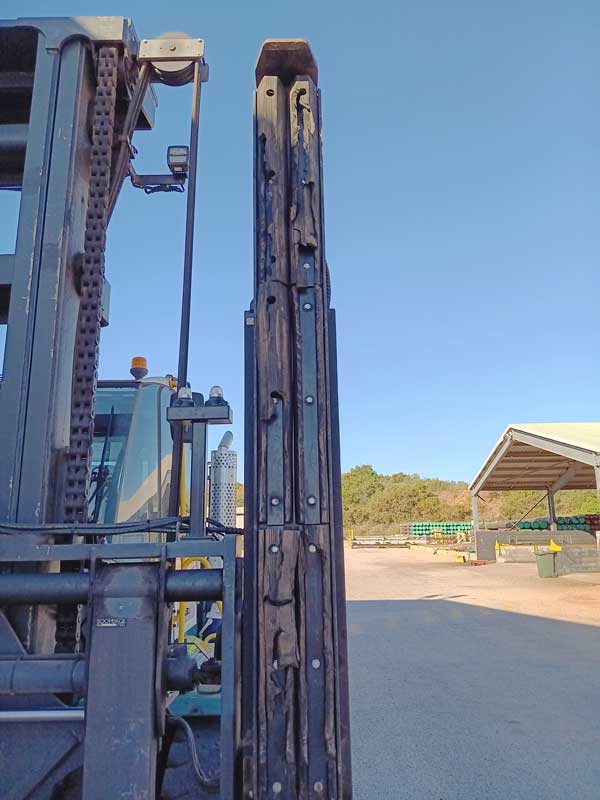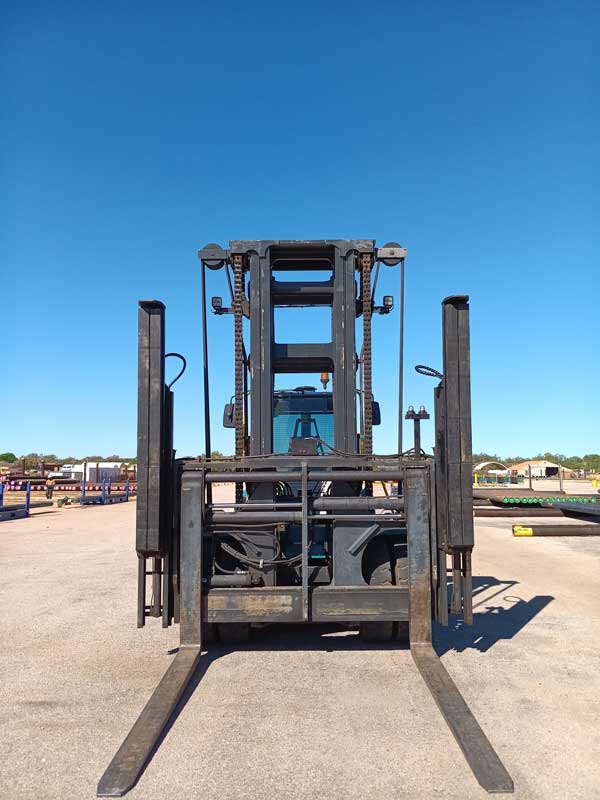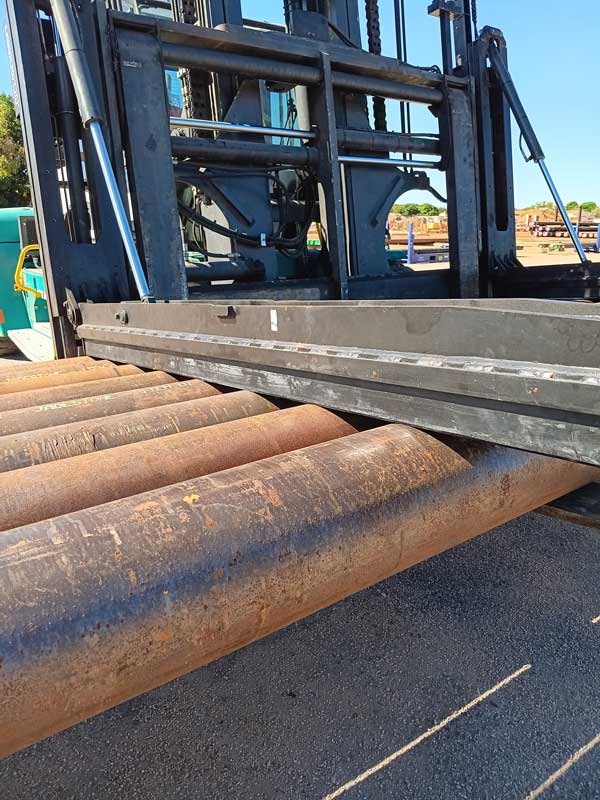Project Overview
A materials handling operation in Northern Australia was experiencing ongoing maintenance issues with their forklift clamp pads. The forklifts were used to lift and manoeuvre large steel pipe sections, but the original rubber pads, made from standard hollow D-fender, were consistently breaking down under the constant compression and heavy use.
The Challenge
The hollow D-fender pads were not designed to withstand the high compressive loads and continuous wear associated with this pipe handling application. As a result, they would frequently crack, lose shape, or completely fail, causing pipe slippage and requiring frequent replacement. The customer needed a more durable, low-maintenance solution that could also safely grip the round pipe surface and prevent load movement.
Solution: Regline WB Rubber wear bars were mechanically installed to replace failing D-Fenders

Reglin recommended the installation of 100mm x 100mm WB Rubber Wear Bars with embedded aluminium T-tracks, fastened securely using T-bolts. These solid rubber wear bars are made from highly durable; impact and wear-resistant SAR 60 rubber, would offer both structural strength and excellent friction properties.
The key performance features of the WB Rubber Wear Bars in this application included:
- Solid rubber construction to prevent collapse under constant compression.
- High-friction surface to effectively grip and stabilise steel pipes during transport.
- Aluminium T-tracks and T-bolts for easy mechanical fastening to the forklift arms, ensuring reliable installation and longevity.
- Resilience to heavy impact and abrasion, extending service life and eliminating the need for constant replacements.
Outcome
The Reglin WB Rubber Wear Bars have proven to be a permanent and reliable solution. They were easily installed using the T-Bolts in the T-Track fastening system onto the existing forklift arms with very minor modification. Since installation, the forklift arms have shown no signs of rubber damage or slippage. The customer reported complete satisfaction with the performance and longevity of the product, confirming that the wear bars eliminated the need for ongoing pad replacements and downtime.
Conclusion
This case study demonstrates the value of upgrading to purpose-built rubber wear products for demanding material handling applications. By replacing standard D-fender pads with WB Rubber Wear Bars, the customer achieved a robust, cost-effective and long-term solution for safe and efficient pipe handling.


